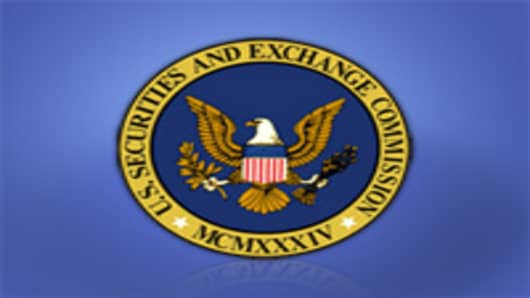The European debt crisis has left markets vulnerable to any sovereign debt rating reports and ratings agencies have seen their influence mushroom in Europe.
And with the spotlight on the agencies, the question of conflict of interest – widely debated in the aftermath of the credit crunch --has risen again.
In November 2008, the G20 said in a report of recommended reforms that regulators “should take steps to ensure that credit rating agencies meet the highest standards of the international organization of securities regulators and that they avoid conflicts of interest, provide greater disclosure to investors and to issuers, and differentiate ratings for complex products.”
On Monday, the Securities and Exchange Commission disclosed that it may sue Moody’s for making “false and misleading” statements as part of its application as a ratings organization
“I think the big agencies have a massive credibility problem,” said James Gellert of Rapid Ratings International, a subscriber-paid ratings firm.
“It’s almost like they’re toll collectors,” Gellert said. “You need a Fitch/Moody's rating if you want to do business. There’s nothing that Congress or the SEC is doing that is preventing them from doing business as usual.”
But proposed financial reform in the US will likely steer clear of major changes for the agencies.
“I believe the agencies are involved with a large lobbying effort that kept them off this round of reform,” Gregg Loshin, Director of a brokerage in New York. “The big question is what role the government will take in the rating process going forward.
I think an entire new federal agency would have to be created to do that job and the current agencies that have been legislated into existence haven't been seen in a positive light recently.”
In Europe, things look a bit different. Leaders in the euro zone were furious when Standard & Poor’s downgraded Greece’s debt to junk status as they were finalizing a €110 billion ($140 billion) rescue package for the country.
European officials are attempting to curb the agencies’ influence over markets.
European Commissioner for Internal Markets Michel Barnier has advanced the idea of creating the EU's own rating agency, while after the S&P downgrade the ECB has dropped ratings requirements for Greek collateral.
José Manuel Barroso, European Commission president, said “Ratings appear to be too cyclical, too reliant on the market mood rather than fundamentals”.
There are some steps in the financial reform package in the US that address the current problems, other analysts argue.
“The legislation being considered in Congress doesn’t change the agencies business models but requires more transparency, bars issuers from shopping for better ratings, and requires licensing for analysts,” said Brian Gardner, Washington research analyst at Keefe, Bruyette and Woods.
However, the fundamental model is likely to stay the same.
“No one is saying, ‘we must end that revenue model.’ I don’t think anyone has nerve or wherewithal to change this system,” Gellert said.
“Triple-A” Alternatives
Some critics propose replacing rating agencies altogether.
At the heart of Sen. Al Franken’s (D-Minn.) amendment in the Financial Reform Bill is the proposal for the SEC to oversee another body to provide the oversight and administration of ratings reform.
“A whole new way of compensation for rating agencies will have to be enacted which mirrors the change that occurred when investment research was separated from investment banking and the soft dollar payment model following the internet bubble,” Loshin said.
Alternative suggestions include having debt issuers pay into a fund that's overseen by a third party -- perhaps the SEC -- and that third party could disperse payments for ratings agencies, or establishing an independent agency run by the federal government.
But others have doubts.
“The government would become the architect and provider of global standards of risk management. It’s hard to believe that markets will flock around a government-provided benchmark of risk,” Gellert said.
At the core of criticism of the agencies is their issuance of investment-grade ratings to hundreds of billions of dollars’ worth of toxic assets.
Of AAA-rated subprime-mortgage-backed securities issued in 2006, 93 percent have now been downgraded to junk status.
“They definitely have a credibility problem,” Ron Wince, president and CEO of Guidon Performance Solutions, said. “The agencies got complacent, got into a mechanical mindset where they went through it (ratings process) without ever raising flags.”
Credit rating agencies defend themselves behind their first amendment, free-speech right to make informed, thoughtful predictions about the future – no different from what journalists or academics do.
They argue that they perform their duty to investors by providing an independent view of long-term credit risk.
“I think people will continue to remember the egregious mistakes they made,” Gellert said. “But the SEC laws, in a lot of cases, embedded their use. Laws continue to promote the importance of the rating agencies in capital markets.”
“I don't think any rating agency is too big to fail as long as the framework is put in place for some type of independent institution to continue their functionality with a revenue structure in which conflicts of interest are eliminated or at least mitigated,” Loshin said.



